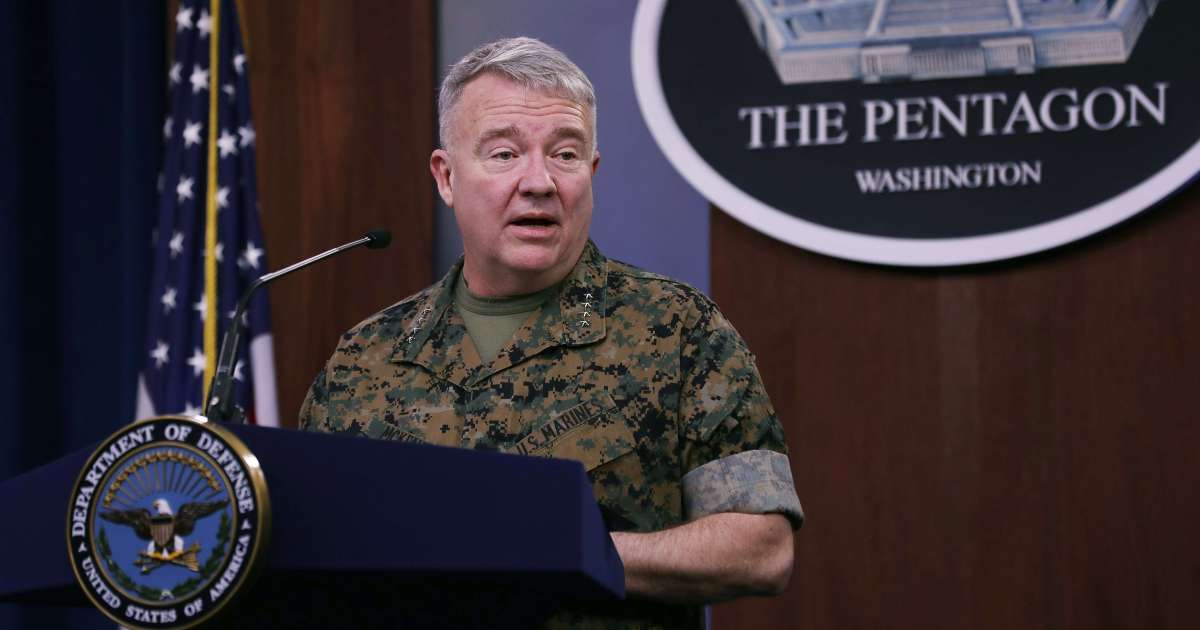The commander of the US Central Command (Centcom), General Kenneth McKenzie, denied his knowledge of the extent of his country's forces in Syria, stressing that the mission is limited to combating the Islamic State, and he also denied that there has been a change in the nature of the military relationship between Moscow and Washington on Syrian territory.
In a press conference held by the US Department of Defense (Pentagon) via video call on Friday, McKenzie said, "Our war vehicles are moving in Syria, and these are signs that we continue to conduct the operations that we need to do, and are not being exposed to by the behavior of Russian bullying. We came to an understanding about that, and I don't see any evidence of an increase in tension between us and Russia in Syria as a result of what is happening in Ukraine."
In response to a question about the possibility of a threat against US forces in Syria from elements supported by Moscow or Russian forces, McKenzie said that he spoke with leaders in Syria and Iraq, adding, "We have not seen any indication that Russia intends to escalate tension in Iraq or Syria, but we are ready." In the event of such a thing happening."
McKenzie referred to the prisons in which refugees and members of the Islamic State are being held in areas controlled by the Kurdish-majority Syrian Democratic Forces, and said, "I do not know how long we will remain in Syria, and in the end this will be a political decision by the US administration based on the situation on the ground." .
General McKenzie also claimed that the mission of his country's forces in Syria is to completely end ISIS.
In this context, the commander of (Centcom) confirmed that the US forces are present in Iraq at the invitation of the Baghdad government, indicating that the latter wants to maintain the military presence not only of the United States, but of the North Atlantic Treaty Organization (NATO) as well.
He stressed that all arrangements related to US forces in Iraq will be made in consultation with the Baghdad government, adding, "Of course we want a normal security cooperation agreement in the long-term future."
With regard to Iran's nuclear program, McKenzie said that Iran is not expected to end its destabilizing activities in the Middle East if a new nuclear agreement is reached with it.
Considering that reaching an agreement with Iran is important to neutralize its nuclear threat before dealing with its other behaviors in the region, he said.
He added, "If we do not succeed in negotiating, here comes the role of the US Central Command to show the Iranians that their behaviors that they want to continue will be very painful for them, and we do that every day, we do it with the strength of the situation and through our other activities that we are doing throughout the region."

